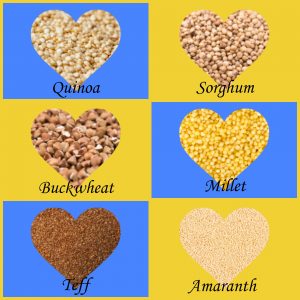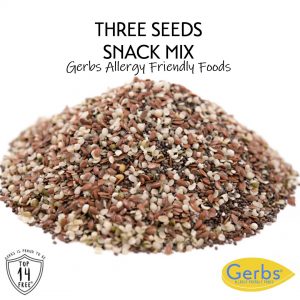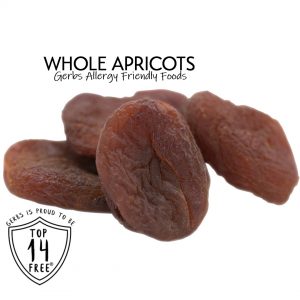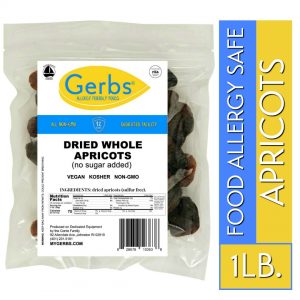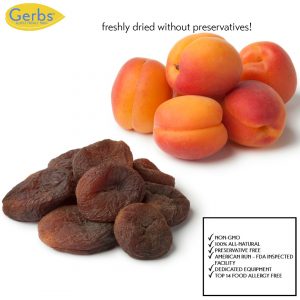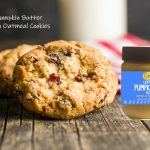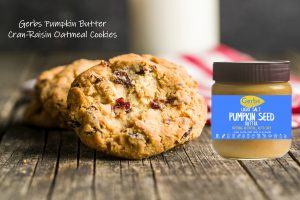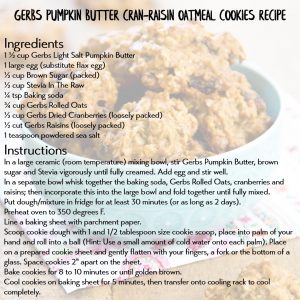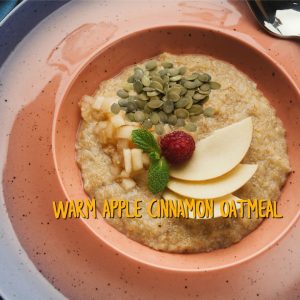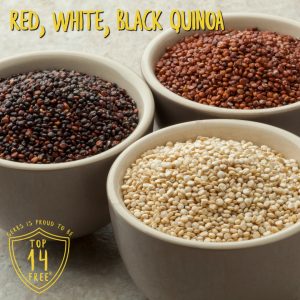Believe it or not, heart disease can happen at any age. Some risk factors for heart disease and stroke are preventable. American Heart Month teaches us the ways we can help reduce our risks while eliminating those we have control over. Do you have one of these risk factors for cardiovascular disease? Obesity, physical inactivity, high blood pressure, cigarette smoking, high cholesterol or diabetes.
Heart disease accounts for nearly one-third of all deaths worldwide. Diet plays a major role in heart health and can impact your risk of heart disease. In fact, certain foods can influence blood pressure, triglycerides, cholesterol levels and inflammation, all of which are risk factors for heart disease.
Here is a list of Gerbs Allergy Friendly Foods products that you should be eating to maximize your heart health:
Gerbs Whole Grains
Teff, Amaranth, Buckwheat, Millet, Quinoa, & Sorghum
Whole grains include all three nutrient-rich parts of the grain: germ, endosperm and bran. Common types of whole grains include whole wheat, brown rice, oats, rye, barley, buckwheat and quinoa. Compared to refined grains, whole grains are higher in fiber, which may help reduce “bad” LDL cholesterol and decrease the risk of heart disease. Multiple studies have found that including more whole grains in your diet can benefit your heart health. One analysis of 45 studies concluded that eating three more servings of whole grains daily was associated with a 22% lower risk of heart disease. Similarly, another study found that eating at least three servings of whole grains significantly decreased systolic blood pressure by 6 mmHg, which is enough to reduce the risk of stroke by about 25%. When purchasing whole grains, make sure to read the ingredients label carefully. Phrases like “whole grain” or “whole wheat” indicate a whole-grain product, while words like “wheat flour” or “multigrain” may not.
Gerbs Berries
Strawberries, Goji Berries, Blueberries, Cherries, & Cranberries
Berries are also rich in antioxidants like anthocyanins, which protect against oxidative stress and inflammation that contribute to the development of heart disease. Studies show that eating lots of berries can reduce several risk factors for heart disease. For example, one study in 27 adults with metabolic syndrome showed that drinking a beverage made of freeze-dried strawberries for eight weeks decreased “bad” LDL cholesterol by 11%. Metabolic syndrome is a cluster of conditions associated with a higher risk of heart disease. Another study found that eating blueberries daily improved the function of cells that line the blood vessels, which help control blood pressure and blood clotting. Additionally, an analysis of 22 studies showed that eating berries was associated with reductions in “bad” LDL cholesterol, systolic blood pressure, body mass index and certain markers of inflammation. Berries can be a satisfying snack or a delicious low-calorie dessert. Try adding a few different types to your diet to take advantage of their unique health benefits.

Gerbs Dark Chocolate
Three sizes of Dark Chocolate Chips, Cacoa Nibs, Cocoa Powders, Dark Chocolate covered Nibs
Dark chocolate is rich in antioxidants like flavonoids, which can help boost heart health. Interestingly, several studies have associated eating chocolate with a lower risk of heart disease. One large study showed that those who ate chocolate at least five times per week had a 57% lower risk of coronary heart disease than non-chocolate eaters. Another study found that eating chocolate at least twice per week was associated with a 32% lower risk of having calcified plaque in the arteries.
Gerbs Sun-Dried Tomatoes
Tomatoes are loaded with lycopene, a natural plant pigment with powerful antioxidant properties. Antioxidants help neutralize harmful free radicals, preventing oxidative damage and inflammation, both of which can contribute to heart disease. Low blood levels of lycopene are linked to an increased risk of heart attack and stroke. One review of 25 studies showed that a high intake of foods rich in lycopene was associated with a reduced risk of heart disease and stroke. Another study in 50 overweight women found that eating two raw tomatoes four times per week increased levels of “good” HDL cholesterol. Higher levels of HDL cholesterol can help remove excess cholesterol and plaque from the arteries to keep your heart healthy and protect against heart disease and stroke.
Gerbs Flax, Hemp & Chia Seeds
Chia seeds, Flax Seeds and Hemp Seeds are all great sources of heart-healthy nutrients, including fiber and omega-3 fatty acids. Numerous studies have found that adding these types of seeds to your diet can improve many heart disease risk factors, including inflammation, blood pressure, cholesterol and triglycerides. For example, hemp seeds are high in arginine, an amino acid that has been associated with reduced blood levels of certain inflammatory markers. Furthermore, flax seed may help keep blood pressure and cholesterol levels under control. One study in people with high blood pressure showed that eating 30 grams of flax seeds every day for half a year decreased systolic blood pressure by an average of 10 mmHg and reduced diastolic blood pressure by 7 mmHg. In one study of 17 people, eating bread made with flaxseed was shown to reduce total cholesterol by 7% and “bad” LDL cholesterol by 9%.
Gerbs Oatmeal
Traditional Rolled Oats, Instant Oats, Oat Groats
A warm bowl of oatmeal fills you up for hours, fights snack attacks, and helps keep blood sugar levels stable over time — making it useful for people with diabetes, too. Oats’ fiber can help your heart by lowering bad cholesterol (LDL). Best results come from using steel cut or slow-cooked oats.


